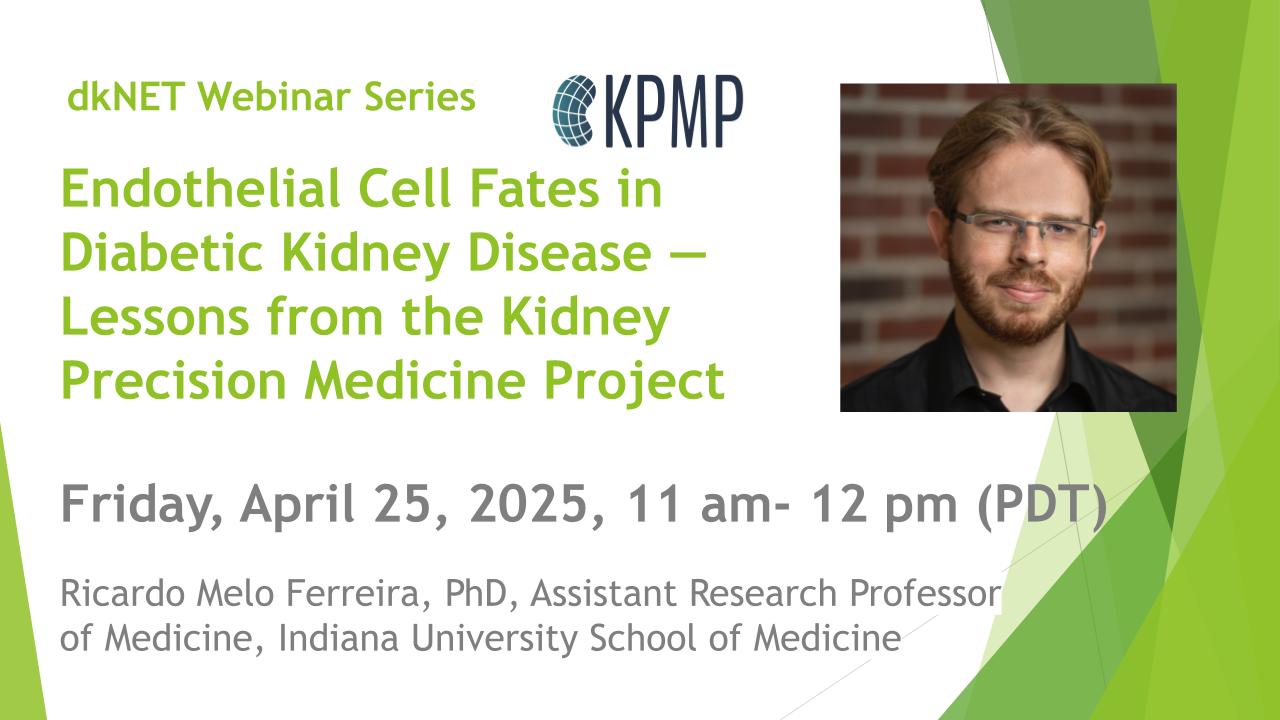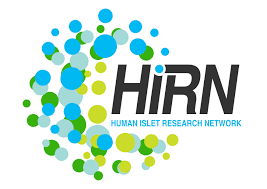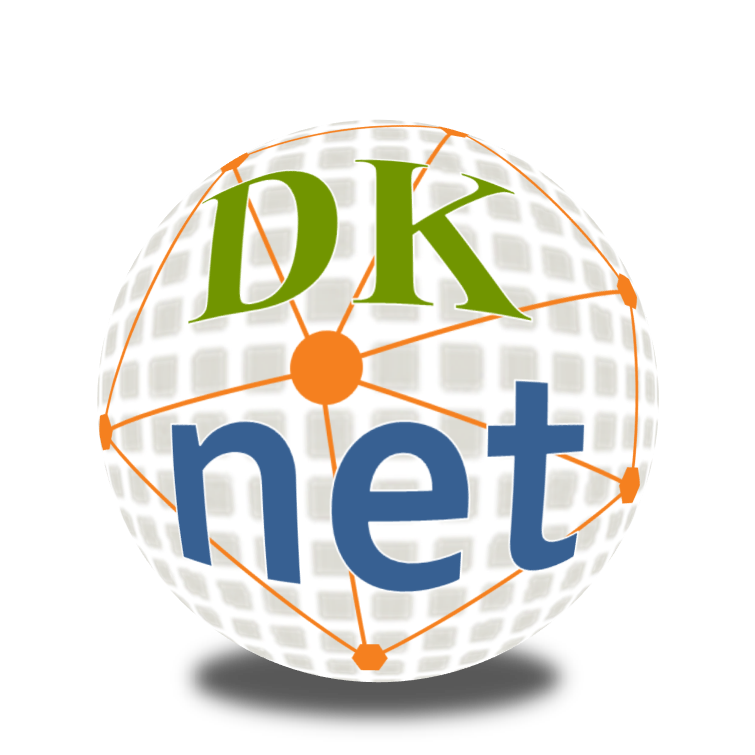Leaving Community
Are you sure you want to leave this community? Leaving the community will revoke any permissions you have been granted in this community.
dkNET Pilot Funding Program in AI Models to Accelerate Diabetes Heterogeneity Research (Now Closed)
Subscribe to our newsletter to receive future funding opportunities
Key Dates
Posted Date: August 23, 2024
Letter of Intent Due Date: October 11, 2024 [LOI should be submitted before 8:59 pm PDT (11:59 pm EDT); LOI is encouraged but not required]
Application Due Date: November 12, 2024 [application should be submitted before 8:59 pm PST (11:59 pm EST); no prior approval is needed to submit the full application.]
Earliest Start Date: January 1, 2025
Expiration Date: November 13, 2024
Submission Site
For further information (eligibility, application, review and selection) and submission instructions, please go to the submission portal at EasyChair (opening on August 30, 2024).
Help and Support: If you need any assistance with your submission, please contact us at submissions@dknet.org
Introduction
One major challenge in Type 2 Diabetes (T2D) is the enormous heterogeneity associated with the disease. This pilot funding program, through the NIDDK Information Network (dkNET, https://dknet.org), is designed to capitalize on the rapid advances in AI and other data science areas in addressing major gaps in the study of Type 2 Diabetes (T2D) heterogeneity, including opportunities in extracting knowledge from the enormous amount of data and literature, and in recruiting AI experts to this area of domain science. It calls for multi-disciplinary teams to: 1) develop AI foundation models for T2D; (2) validate the models with top research questions in T2D heterogeneity; (3) disseminate the models and engage the community for further development, validation and application; and (4) develop use cases that demonstrate the models’ potential in accelerating research in diabetes heterogeneity study. The teams are expected to work with dkNET to coordinate their projects, so that awardees can integrate and share products through the dkNET platform.
Background
One major challenge in Type 2 Diabetes (T2D) is the enormous heterogeneity associated with the disease, examples include the heterogeneity in genetic predisposition, environmental exposure, individual physiology, biological and pathophysiological pathways in developing disease, to heterogeneity in clinical phenotypes, i.e. response to medication and treatment, and in risk for developing complications and types of complications. To address this challenge, the T2D research community has generated a large amount of data, and has accumulated a vast amount of prior knowledge about the disease. Cross cutting gaps exist in integrating them and extracting predictive signals to advance T2D prevention, diagnosis, prognosis and treatment. Rapid advancements in data science and AI technology offer emerging opportunities and transformative potential in addressing these gaps. Most notably, advancement in generative AI and Large Language Models (LLMs) such as ChatGPT, LLaMA, and Gemini, demonstrate great potential in extracting hidden knowledge and in using the knowledge to further guide multimodal data integration, answering questions, summarizing relevant information, and proposing/evaluating hypotheses. The transformative potential of new AI technologies in biomedicine is widely appreciated. The opportunities in recruiting more AI expertise to T2D research and to strengthen and diversify its workforce are equally important. The goal of this pilot program is to recruit multi-disciplinary teams that include both AI experts and diabetes researchers developing AI foundation models, which will be shared and used by the community, in addressing the major gaps in the study of T2D heterogeneity, and accelerating innovation and translation.
Objectives and Scope
Foundation AI models are large-scale models that are broadly trained and can complete a range of tasks. Some known examples include the Chat Generative Pretrained Transformers (GPT), or ChatGPT, a general purpose foundation model; and scGPT, a foundation model for single cell multi-omics. Though these models are often trained for broad tasks, they have been applied either out of the box or after additional fine tuning, and have demonstrated great potential in biomedicine, including serving as expert systems, and support tools for research, clinical decision making, and patient self-management.
If such foundation models are developed for T2D, researchers can use them to directly support their data reuse, prior-knowledge curation and extraction, and integration and modeling of multi-modal data types with prior knowledge. They can also be further fine-tuned and serve as intelligent systems supporting specific problems relevant to T2D heterogeneity. Furthermore, researchers can use them to develop problem specific resources such as data curation and labeling tools, synthetic datasets to assist clinical studies, data analysis software tools and workflows, support tools for T2D clinical decision making and patient self-management tools, and benchmarks. The pilot funding will provide opportunities to recruit multidisciplinary teams that include both T2D and AI experts, and to develop foundation models in areas including but not limited to:
Information Extraction
- Data-efficient generative AI models for information extraction from unstructured text, and approaches that seek data efficiency and domain adaptability
- Al models that reframe knowledge extraction as a natural language generation task, allowing domain experts to use natural language descriptions to incorporate specific domain knowledge, such as the meanings of entities and relationships, into the information extraction model
- Approaches to facilitate retrieval-augmented generation (RAG) for biomedical LLMs
- Approaches to use the extracted information to augment the training of the foundation model of multimodal datasets
Representation Learning and Explainability
- Scalable, continually expanding, and factually accurate knowledge graphs comprising concepts from biomedical literature
- Knowledge graph embeddings, multimodal representation learning
- Logic and probabilistic reasoning
- Explainable AI, transparent inference mechanism
- Ethics and bias mitigation
T2D Heterogeneity and Multimodal data
- Approaches tackle systems level multi-organ/multi-scale modeling challenges in mapping the heterogeneities in biological and physiological processes and how they impact T2D etiology, pathology, and prognosis
- Precision disease subtyping with multimodal data and molecular biomarkers
- Models to assess and understand the heterogeneity in intervention effect at individual and in community levels
- Models to support study of T2D associated health disparities and the impact on disease heterogeneity
Clinical Decision Support
- Decision support system for clinicians and patients based on the subtypes of T2D
- Models to predict and guide intervention and response such as physical activity and dietary prescriptions
- Models to improve the diagnostic, prognostic, and therapeutic value of Continuous Glucose Monitoring (CGM) profiles in all persons with dysglycemia, and to define digital markers of heterogeneity from CGM profiles together patient-specific factors (e.g., SDOH, age, comorbidities)
- Interpretation and integration of real-time data from CGM and other wearables technology for real-time monitoring of behavioral and physiological parameters to explore diabetes heterogeneity, and to create and assess just-in-time interventions
- Models and digital biomarkers to understand psycho-social-behavioral components of T2D heterogeneity
Given the limited funds available and the pilot nature of the program:
- The application should aim at developing a set of performance metrics for data sets and AI models at the “proof-of-concept” level.
- Applications proposing the purchase of GPUs, or allocation of a significant portion of the budget for cloud resources will not be considered responsive.
- Collecting primary data will not be considered responsive.
Applications should also demonstrate willingness and plans to work with dkNET to coordinate model development, model sharing, AI ethics, co-design with stakeholders, community engagement, and use case development. dkNET, the NIDDK Information Network (https://dknet.org), is a program that supports the NIDDK community’s needs by providing an information portal that connects users to data, analytical tools, and other biomedical research resources. Additionally, dkNET supports researchers by providing a hub for data-driven hypothesis generation; a suite of tools that assist users in FAIR (Findable, Accessible, Interoperable, Reusable) practice, and in improving rigor and reproducibility in research; and a variety of programs to enhance community engagement and workforce development. dkNET previously successfully ran and managed the dkNET New Investigator Pilot Program in Bioinformatics. dkNET program is currently developing an open data science platform to enable the community to participate in AI model development, to share their models, and to develop use cases.
Award Information
Funding Instrument: Fixed price subaward, awarded from the NIDDK Information Network (dkNET), University of California San Diego
Application Types Allowed: New. Studies meeting the current NIH definition of Clinical Trials will NOT be eligible for support under this funding opportunity.
Funds Available: dkNET intends to commit approximately $750,000 in FY2025 to fund up to 5 awards
Award Budget: Awards are limited to $175,000 total costs for 1 year, including applicable F&A costs to be determined at the time of award.
The award budget should not include funds for purchasing GPUs or allocation of a significant portion of the budget for cloud resources.
Project Period: The initial award is for one year, with the possibility of renewal pending the availability of funds.
Contact Information
Xujing Wang, Ph.D.
DDEM/NIDDK/NIH
Tel: 301-451-2862
xujing.wang@nih.gov *Preferred method of contact




